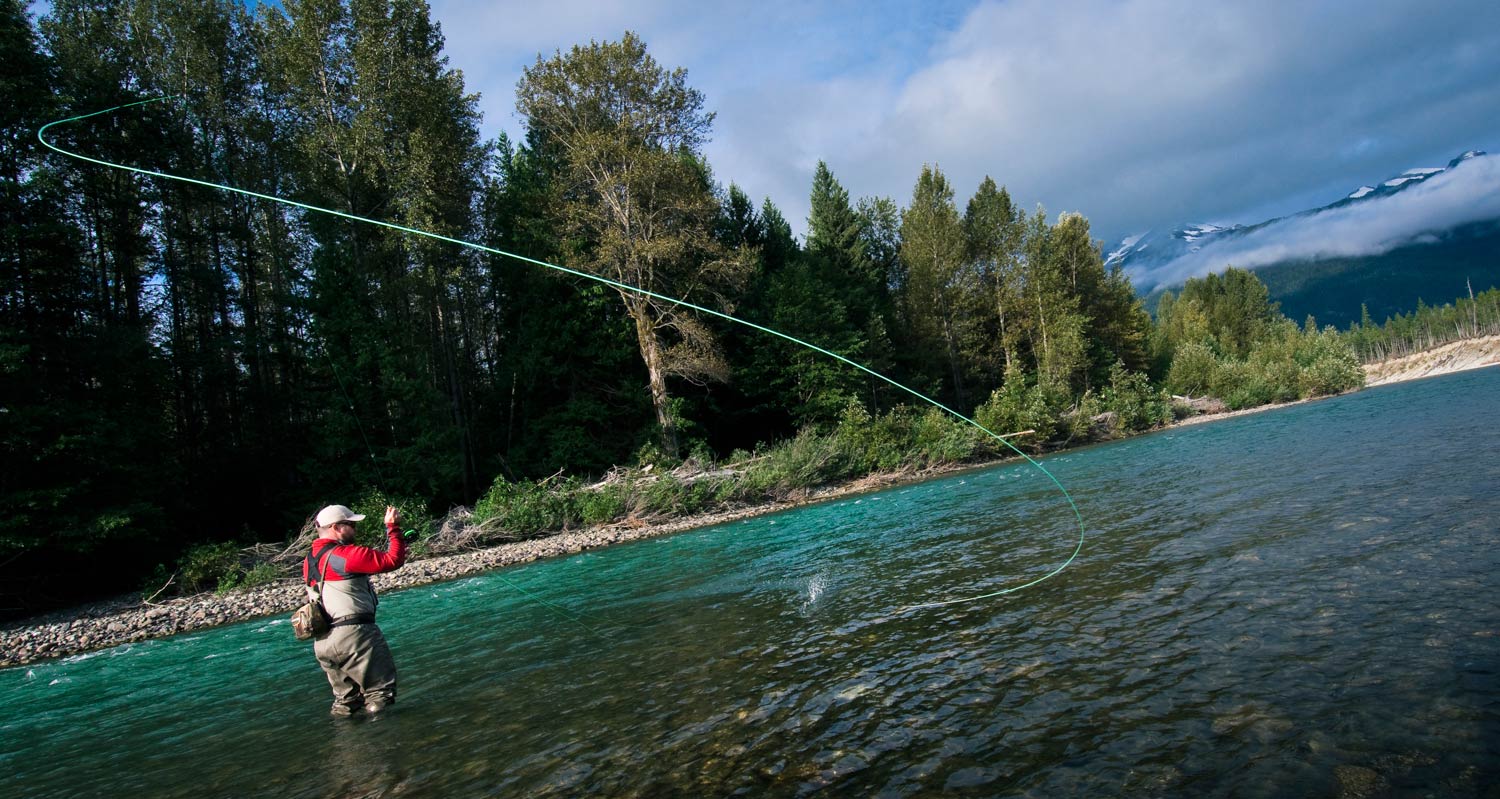By Jeff Hickman
The most common fishing problem I see among spey fishers who can cast well is over casting.
I refer to this plague as Speyitis. Just because you can cast all the way across the river doesn’t mean that you should all the time. I know it is fun to throw a long line and its even more fun if you can get yanked way out there. For successful fishing it’s important to read the water and decide if a long cast is important there. Much of the time in many spots the fish is likely to be in the inside soft water. Casting across the seam way out into the heavy current you are wasting your time, not allowing your fly to sink and also not allowing it to effectively swing all the way in below you.
If fishing with sinktips, the question to ask yourself or your guide is if you want distance or depth at each spot. In some longer runs the answer may change as you fish through them. Deeply swung fly in the head or middle gut of the run and shallow fly covering across the entire tail out. With one you are going to compromise on the other. If you want distance you will lose depth, if you want depth you will lose distance.
Casting angle is probably the single most important element to catching fish on the swing. Some spots are more forgiving and allow a range of casting angles but many spots require a very specific casting angle to fish them effectively. Your casting angle greatly contributes to the depth and speed of your fly. Cast angled downstream and your fly will stay shallow, swing slowly but also cover less range across the river. Cast square to the current and your fly will have time to sink, your line will have a tendency to belly and increase the fly speed and you will cover more range across the river. Currents, depths and fish holds are infinite, so why is it that most Spey anglers I see on the river all try to cast as far as they can quartered slightly downstream at every spot? If you adjust to the spot your results will be favorable.
Jeff Hickman Gink & Gasoline www.ginkandgasoline.com hookups@ginkandgasoline.com Sign Up For Our Weekly Newsletter!


I see this a lot, and not just with spey or even fly fishing. How many times have you or someone you know started wading into a river or lake, only to see one or more target fish spook away?
Many species love to hang out and eat in the margins, whether the water margins with the bank or margins of fast to slow water.
It is great practice to hang back, make a few casts before you get to the waters edge (if vegetation allows) before actually stepping up to and into the water.
Great reminder! We probably step on more fish than we ever catch.
Overcasting is really common mistake. But practice improves anything. I see that mistake get less and less here at Skeena Spey. I think the great location helps everyone develop their skills. It’s beautiful out there>> http://www.skeenaspey.com/the-lodge/gallery/